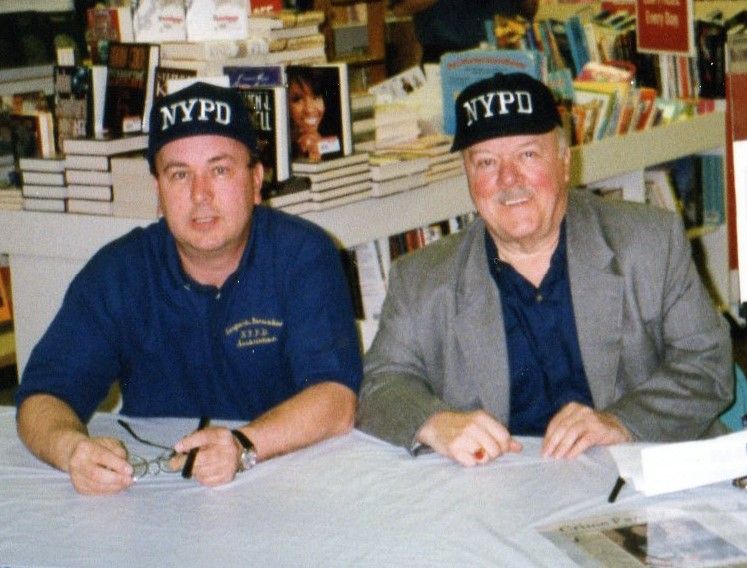The father-son writing team of Jon and Bernard Whalen had just released their first novel when their agent suggested they use their professional backgrounds in law enforcement to conceive a work of non-fiction.
That was about 15 years ago, when Jon, an ex corrections officer and retired Manhasset High School English teacher, and Bernard, now a lieutenant in the New York City Police Department, first pitched to publishing companies a history of the NYPD.
At first, the idea didn’t take.
“We couldn’t get a publisher for it,” said Bernard, who grew up in Queens and now lives in West Hempstead. “There was too much material.”
So they shelved the idea, with Bernard writing for various law enforcement trade publications over the years, gradually parsing their tale down to focus on police commissioners, the mayoral administrations that hired and fired them and the impact department leadership had on officers patrolling the Big Apple.
And rather than tell the NYPD’s entire story, their book would begin with the consolidation of the five boroughs in 1898 and end shortly after the Allied forces won World War II.
“We ended up meeting a new agent and discussed what we might have had in the hopper and he was able to sell the book,” said Bernard, referring to the recently-released “The NYPD’s First Fifty Years: Politicians, Police Commissioners, and Patrolmen,” published by Potomac Books.
Though Jon and Bernard split the writing duties, Bernard utilized his access to department records and historical accounts to take on primary researching duties, while his father perfected their copy with his edits.
“We worked very well together, and we agreed on just about everything in our weekly or semiweekly meetings on what we were going to do,” said Jon, who taught at Manhasset High School from 191970-96 and now lives in upstate Auburn. “There wasn’t really any friction because we had it all mapped out, and [Bernie] was very instrumental, because he is a cop, in getting the police procedure down, so everything was real.”
The book begins with the unification of police departments in Brooklyn, Staten Island, Long Island City and other parts of Queens and the Bronx with Manhattan — known then as the NYPD — and details the landmark cases and technological advancements that came to define city police work.
Interspersed are anecdotes, tales of both triumph and corruption, that rocked the city’s political landscape in its earliest days.
“The idea is that each chapter is based on a mayoral administration and the politics that got the mayor elected and his crime platform and who he picks to lead the department, because that has a hand in determining whether or not the mayor’s going to get re-elected,” Bernard said. “You see it today — if crime goes through the roof under [Bill] de Blasio, aside from the other stuff that’s going on, he’s probably not going to get re-elected.”
Response to the book has so far been positive.
A recent New York Times profile on the book said “The NYPD’s First Fifty Years,” “provides some welcome historical perspective on current events.”
NYPD Commissioner William J. Bratton wrote the book’s foreword, and Bernard has been pegged to teach a course focused on the book to cadets with the department’s Training Bureau.
“The history of the job really gives you perspective on what’s going on today,” said Bernard, a 1975 Manhasset alumnus who has been a NYPD officer since 1981. “You find out that a lot of the things that have troubled us today, troubled us in the past, and by looking at things in the past, it helps to inform how you should be doing things today.”
“A policeman’s lot today is very much the same as it was back then,” he added. “You don’t get invited to people’s parties. You’re there because there’s trouble at the party.”



